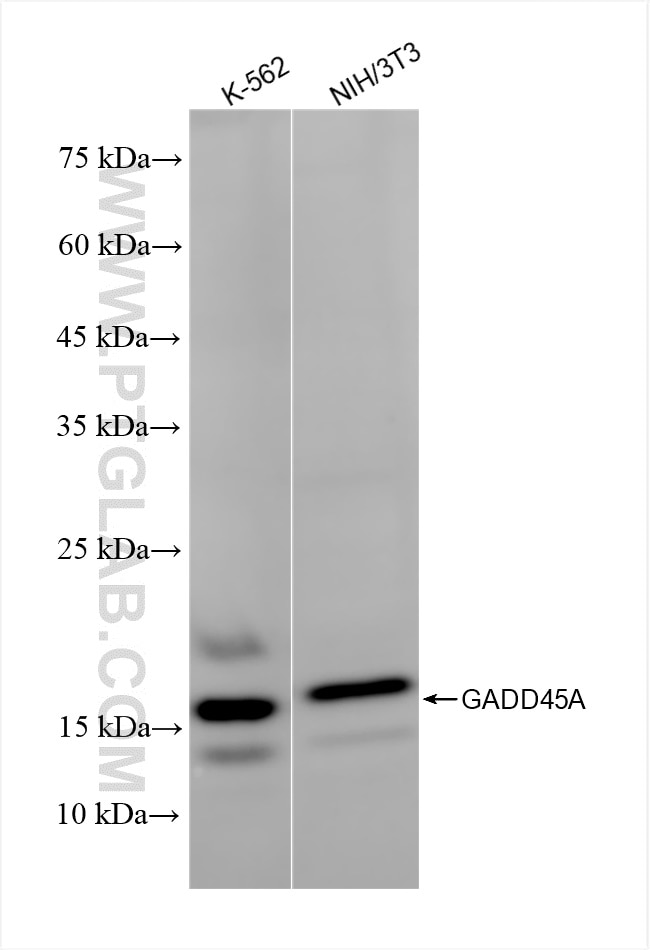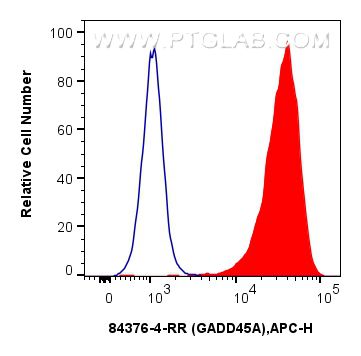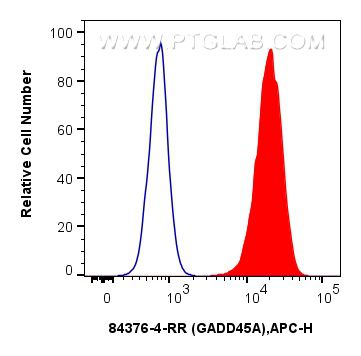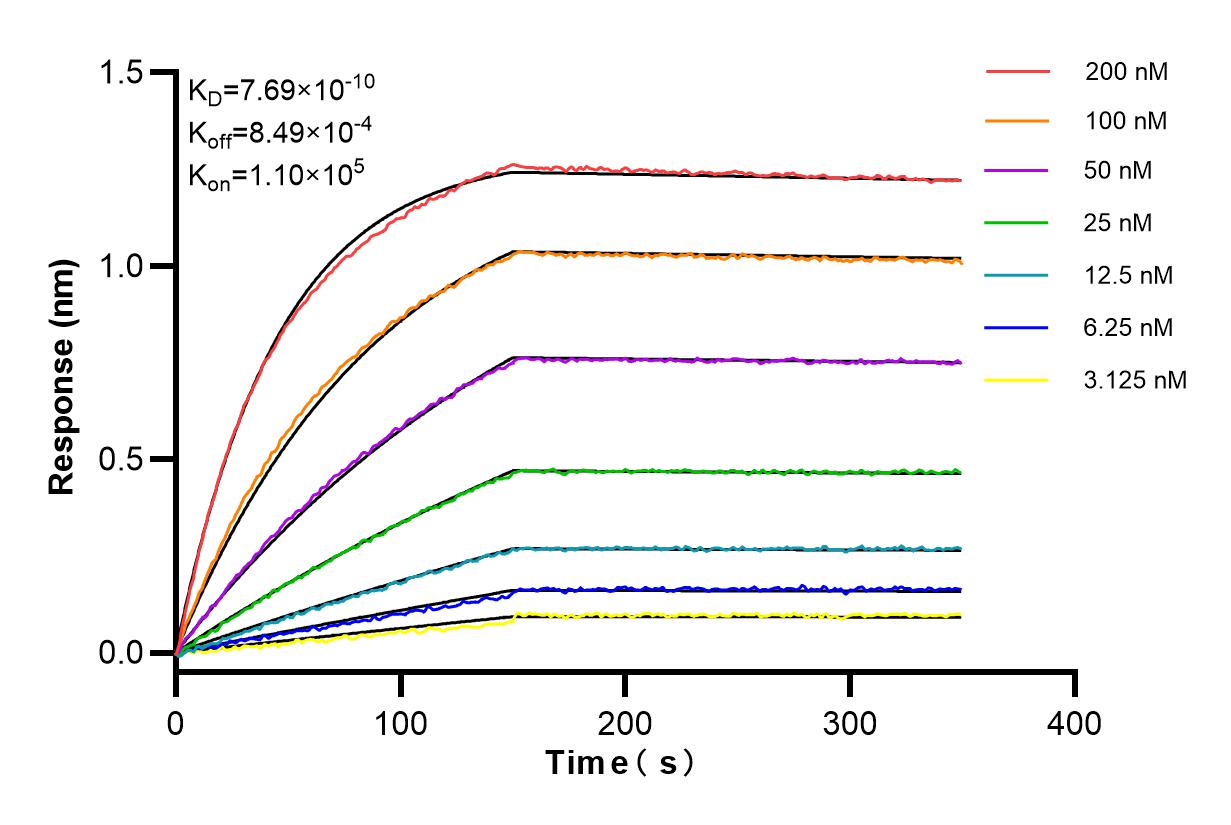Validation Data Gallery
Tested Applications
| Positive WB detected in | K-562 cells, NIH/3T3 cells |
| Positive FC (Intra) detected in | U-2 OS, K562 |
Recommended dilution
| Application | Dilution |
|---|---|
| Western Blot (WB) | WB : 1:5000-1:50000 |
| Flow Cytometry (FC) (INTRA) | FC (INTRA) : 0.25 ug per 10^6 cells in a 100 µl suspension |
| It is recommended that this reagent should be titrated in each testing system to obtain optimal results. | |
| Sample-dependent, Check data in validation data gallery. | |
Product Information
84376-4-RR targets GADD45A in WB, FC (Intra), ELISA applications and shows reactivity with human, mouse samples.
| Tested Reactivity | human, mouse |
| Host / Isotype | Rabbit / IgG |
| Class | Recombinant |
| Type | Antibody |
| Immunogen | GADD45A fusion protein Ag4687 相同性解析による交差性が予測される生物種 |
| Full Name | growth arrest and DNA-damage-inducible, alpha |
| Calculated molecular weight | 165 aa, 18 kDa |
| Observed molecular weight | 14-18 kDa, 28-36 kDa |
| GenBank accession number | BC011757 |
| Gene Symbol | GADD45A |
| Gene ID (NCBI) | 1647 |
| RRID | AB_3671913 |
| Conjugate | Unconjugated |
| Form | Liquid |
| Purification Method | Protein A purification |
| UNIPROT ID | P24522 |
| Storage Buffer | PBS with 0.02% sodium azide and 50% glycerol , pH 7.3 |
| Storage Conditions | Store at -20°C. Stable for one year after shipment. Aliquoting is unnecessary for -20oC storage. |
Background Information
GADD45A, also named as DDIT1 and GADD45, belongs to the GADD45 family. It binds to proliferating cell nuclear antigen. GADD45A may affect PCNA interaction with some CDK (cell division protein kinase) complexes; stimulates DNA excision repair in vitro and inhibits entry of cells into S phase. GADD45A plays an essential role in active DNA demethylation during terminal osteogenic differentiation of adipose-derived mesenchymal stem cells. GADD45A has Dimer (~28-36 kDa) and Monomer (14-18 kDa) forms (PMID:11498536).
Protocols
| Product Specific Protocols | |
|---|---|
| WB protocol for GADD45A antibody 84376-4-RR | Download protocol |
| Standard Protocols | |
|---|---|
| Click here to view our Standard Protocols |



